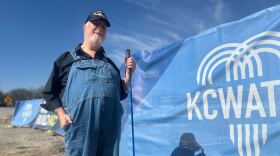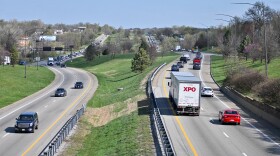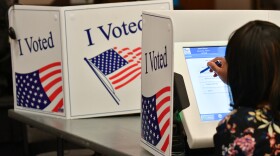-
KC Water began the Westport Stormwater Improvement Project in January of this year to combat flash floods that have regularly put sidewalks and parking lots in Westport under water. They know the flood mitigation is needed but it makes daily life difficult for people who work, shop and eat in the area.
-
Highway construction tore through the historically Latino neighborhood in the latter half of the 20th century. Now, Kansas City is reconsidering the roadways with an eye toward addressing some of the harms they have caused.
-
Kansas City is considering changes to Highway 71 as part of its project to reconnect the neighborhoods torn apart decades ago by its construction. But some residents who live near the highway wonder if officials have their best interests in mind.
-
The $500,000 grant will help Overland Park make its streets safer. But several community members raised concerns that the Trump administration's terms require cooperation with immigration enforcement and compliance with executive orders banning diversity.
-
As part of Kansas City's efforts to explore how to reconnect the predominantly Black neighborhoods that were split by the construction of Highway 71, local artists are using their talents to visualize people's ideas.
-
In Missouri, a car launched into the air after driving over a large bump in a buckled road. It's just one of many incidents being reported in recent heat waves. Why is this happening?
-
Bruce R. Watkins Drive took three decades to build, and resulted in the destruction of 2,000 homes and the displacement of thousands of Black residents. Kansas City officials and longtime residents hope a new federal grant can reconnect the neighborhoods torn apart by Highway 71, but mending old wounds won’t be easy.
-
The Moody Hills neighborhood, once shaded with towering trees, is now lined with stump after stump. It’s part of a street reconstruction project that will also completely overhaul other infrastructure in the northern Overland Park neighborhood.
-
Bruce R. Watkins Drive took three decades to build, and resulted in the destruction of 2,000 homes and the displacement of thousands of Black residents. Kansas City officials and longtime residents hope a new federal grant can reconnect the neighborhoods torn apart by Highway 71, but mending old wounds won’t be easy.
-
Former U.S. Sen. Roy Blunt was instrumental in securing funding for the project to cap a portion of I-670 downtown. But construction on the park is delayed, which means it likely won’t be completed by the 2026 World Cup.
-
The Kansas Department of Transportation said that federal steel and aluminum tariffs, which are already in place, are going to make it more expensive to work. Another wave of tariffs are expected on April 2.
-
Missouri will hold municipal elections on April 8. Voters across the Kansas City area will weigh in on issues like investing in public safety, improving infrastructure and electing their school board members. Here's a guide to what's on your ballot, plus what you need to vote.
Play Live Radio
Next Up:
0:00
0:00
Available On Air Stations












